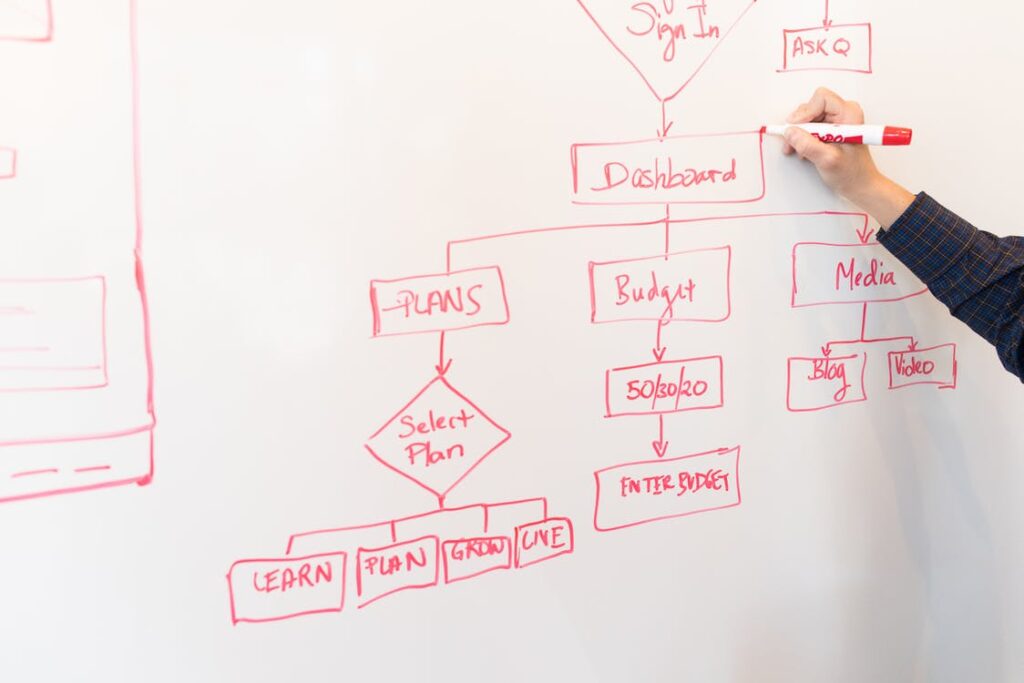An experience report on virtual teaching at FHWien der WKW
Forced by the Covid-19 restrictions, we adapted an organizational laboratory for a virtual environment. How can organizational dynamics on different levels (structure, culture, processes, relationships) be experienced and explored online? An interview by Christina Schweiger (CS) with Barbara Kump (BK) and Joachim Schwendenwein (JS), external lecturers in the study area “Human Resources & Organization “, provides an insight into the virtual implementation of the organisation laboratory.
CS: You held a five day organizational dynamics course for FHWien der WKW with 73 participants in Minecraft. How was that?
BK: It was a great adventure! Since 2014, we have been holding the Organizational Laboratory, OLab for short, every year live in a seminar hotel. Then corona came along and we faced the challenge to transfer the OLab into virtual space in the shortest possible time. However since 2017 we are very well-rehearsed and crisis-tested in our staff-team consisting of Babette Brinkmann, Matthias Lang, Andrea Schaffar, Joachim Schwendenwein and me. This made it possible to rethink this in such a short time.
CS: What is so special about an OLab?
JS: The Olab as an experience-oriented learning arrangement is in the tradition of the action learning approach. It allows the participants to design, experience and reflect on essential organizational phenomena (processes, structures, interaction patterns) from the closest possible proximity.
BS: An organization is built up over a few days – in fast motion, so to speak. The participants can experience and reflect on organizational processes in the here and now. This enables comprehensive and practice-oriented learning about organizations with unparalleled intensity and density.
CS: How can we imagine the OLab in Minecraft?
BK: We divided the 73 participants into 4 divisions. Each division had its own starting point in Minecraft and half a day to set up structures and settle in ‘at home’. The ‘reward’ was a virtual firework display in Minecraft. When the fireworks started, the avatars in Minecraft started jumping spontaneously to express their joy. It was an amazingly emotional moment in this game environment, and for us it was one of many indications that the transfer to virtual space was successful.
CS: The students were thrilled with the online format. How do you see that in terms of learning?
JS: During the whole OLab we had a reflection track set up. Every day, we surveyed the individual’s state of mind via online surveys, stimulated reflection in small groups by asking key questions and structured the exchange in various online group formats. On the 4th and 5th day of the OLab this led to an intensive process of reflection in order to transfer the experiences into practice.
BK: When reading the reflections, I was surprised how similar the learning experiences were in the real and virtual settings. Students reported differences between the forms of organization, decisions, communication patterns and so on. Similar dynamics as in the life setting became visible.
Contact:
FH-Prof. Dr. Christina Schweiger
Head of Study Programs
Human Resources & Organization
christina.schweiger@fh-wien.ac.at
